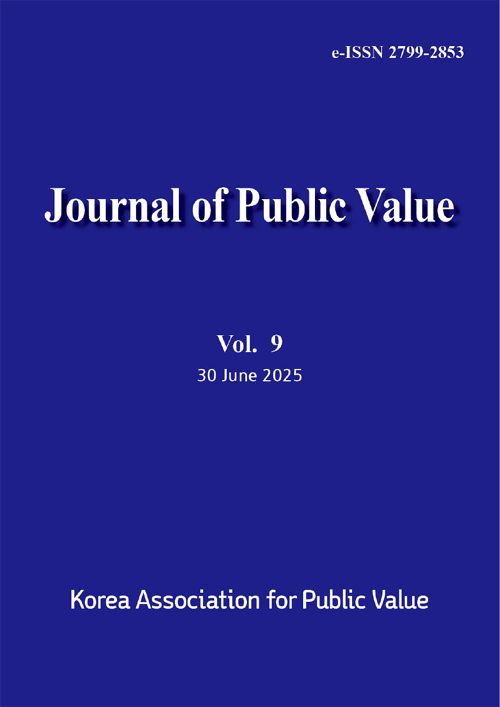The Public Value of Psychological Capital: Evidence from Skilled Migrant Lecturers in South Korea
- 한국공공가치학회
- Journal of Public Value
- Vol. 9
-
2025.0653 - 60 (8 pages)
-
DOI : 10.53581/jojopv.2025.9.1.53
- 0

Purpose: Psychological Capital (PsyCap), a positive psychological resource comprising hope, efficacy, resilience, and optimism, has been shown to enhance employee well-being and performance. However, its public value - particularly in non-Western contexts - remains underexplored. This article investigates the potential of PsyCap as a resource of public value by examining its effects on skilled migrant lecturers in South Korea. It explores whether PsyCap predicts key workplace outcomes that not only benefit individual employees but also support institutional and societal functioning. Method: This study employed a quantitative cross-sectional survey design using validated psychometric instruments. Data were collected from 153 skilled migrant lecturers working at South Korean universities. Regression analyses were conducted to examine the extent to which PsyCap predicted subjective happiness, work engagement, career satisfaction, and turnover intent. All models controlled for relevant demographic variables. Results: PsyCap was found to be a statistically significant predictor of all four outcome variables. It explained 53% of the variance in subjective happiness, 31% in work engagement, 26% in career satisfaction, and 30% in turnover intent (p < .001 for all). These findings demonstrate PsyCap’s robust predictive power across both positive and negative workplace outcomes. Conclusion: The results confirm PsyCap’s value beyond individual performance or organizational metrics. By fostering happier, more engaged, and more stable academic staff, PsyCap contributes to educational quality, institutional continuity, and broader public goods such as student success and social cohesion. Framing PsyCap as a public value resource highlights its relevance to workforce resilience and well-being in diverse national contexts and supports its integration into higher education and public-sector policy strategies.
1. Introduction
2. Literature Review: Psychological Capital and Its Broader Significance
3. Methodology
4. Results
5. Discussion: Psychological Capital as Public Value
6. Practical and Policy Implications
7. Conclusion
8. References
(0)
(0)